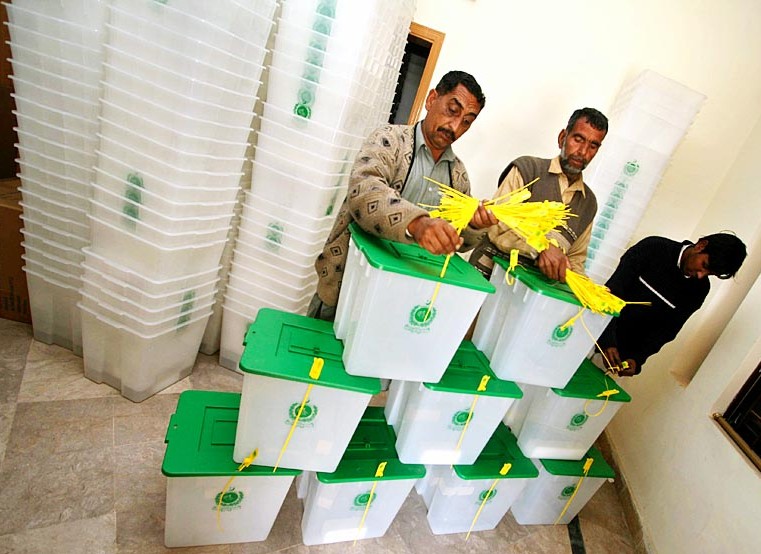
The Constitution makes it mandatory to fill a vacant assembly seat at the earliest to ensure that no constituency is deprived of representation in parliament, but its framers had not imagined that one day political parties and their candidates would render the whole exercise a futile activity.
The upcoming by-elections for 33 National Assembly seats, which fell vacant after its speaker Raja Pervaiz Asraf accepted the resignations of the PTI lawmakers, is just an example of this.
Following the speaker’s decision, the Election Commission of Pakistan (ECP) announced the by-elections for the 33 constituencies on March 16.
Knowing that general elections were just around the corner and the PTI might not return to the NA, the polls would just be held to fulfill a constitutional requirement.
Millions of rupees would simply go to waste as they would be held again after the completion of the assembly’s constitutional term.
Political experts, while emphasising the necessity of fulfilling a constitutional requirement, were aware that the national kitty would lose millions amid a financial crunch.
They said there were several other objectives that political parties, especially, the PTI, would achieve through the exercise.
Previously, the PTI had stood victorious in the by-elections even when it had announced beforehand that it would not return to the assembly.
This time around, the political experts noted that the PTI was trying to assess different aspects and attempting to achieve multiple purposes that were part of its strategy.
“Contesting in the by-elections is part of the strategy to create difficulties for the government so that it might be forced to hold early general polls,” said Pakistan Institute of Legislative Development and Transparency (PILDAT) President Ahmed Bilal Mehboob.
The PILDAT chief added that resignations from the NA en masse, dissolution of the provincial assemblies in Punjab and Khyber-Pakhtunkhwa as well as PTI chairman Imran Khan contesting the by-elections from multiple constituencies were all part of the same strategy.
Mehboob regretted that it was not being taken into consideration that these tactics would hurt the national exchequer or create instability in the country.
Professor Dr Rasul Bakhsh Rais, a Professor of political science at LUMS, said the only thing the PTI could achieve through the by-elections was continuous public mobilisation, spreading its narrative and whatever manifesto the party leaders had in their minds.
“The party [PTI] would continue to use all of it as part of its narrative,” he added.
The professor said the most significant aspects for the PTI would be how to combine its support in different constituencies together, test the second- and third-tier leadership and see what the ground situation really was.
More importantly, he added that the PTI would use its victory against the Pakistan Democratic Movement (PDM) in the general elections.
“Being one of the largest and most popular parties, the PTI can’t be simply denied power,” Prof Rais explained.
“I think it [by-polls] will serve multiple purposes,” the professor said, adding the exercise would help in coalition building, political mobilisation, articulation of its manifesto and forming alliances with different groups within the constituencies.
At the same time, Rais said the activity would test the capacity of the candidates in their respective constituencies.
The professor elaborated that from this point of view if the PTI emerged successful, it would remain aggressive and the PDM on the defence.
“Their [PDM]’s resistance to elections shows that it is not prepared for them and likely to lose them,” he concluded.
Recently, the NA speaker had accepted the resignations of 34 lawmakers belonging to the PTI and one member of the Awami Muslim League (AML).
A total of 123 PTI MNAs had resigned en masse on April 11 last year – two days after their party chairman was ousted as the prime minister through a no-confidence motion.
After dragging his feet over the process for eight months, the NA speaker finally accepted the resignations of 34 PTI MNAs on January 17 and 35 on January 20, including that of AML chief Sheikh Rashid.
On January 25, the ECP de-notified 43 more PTI lawmakers after Ashraf accepted their resignations.
The constituencies where the by-elections are scheduled to be held include NA-4 Swat; NA-17 Haripur; NA-18 Swabi; NA-25 and 26 Nowshera; NA-32 Kohat; NA-38 Dera Ismail Khan; NA-43 Khyber; NA-52, 53, and NA-54 Islamabad; NA-57, 59, 60, 62 and 63 Rawalpindi; NA-67 Jhelum; NA-97 Bhakkar; NA-126 and 130 Lahore; NA-155 and 156 Multan; NA-191 Dera Ghazi Khan; NA-241, 242. 243, 244, 247, 250, 252, 254, and 256 Karachi; and NA-265 Quetta.
Several PTI leaders were asked for their comments on the story, but they did not share their thoughts.

1725354252-0/Untitled-design-(5)1725354252-0-405x300.webp)
1732099866-0/adele-(3)1732099866-0-165x106.webp)




1732099821-0/BeFunk_§_]__-(14)1732099821-0.jpg)




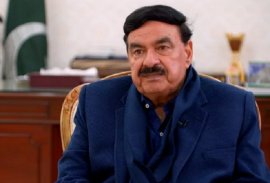
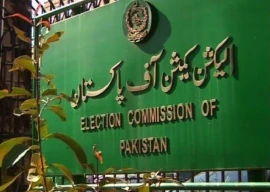
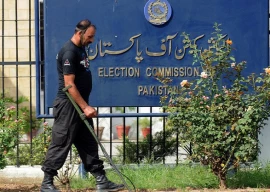
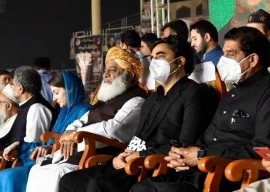






COMMENTS
Comments are moderated and generally will be posted if they are on-topic and not abusive.
For more information, please see our Comments FAQ